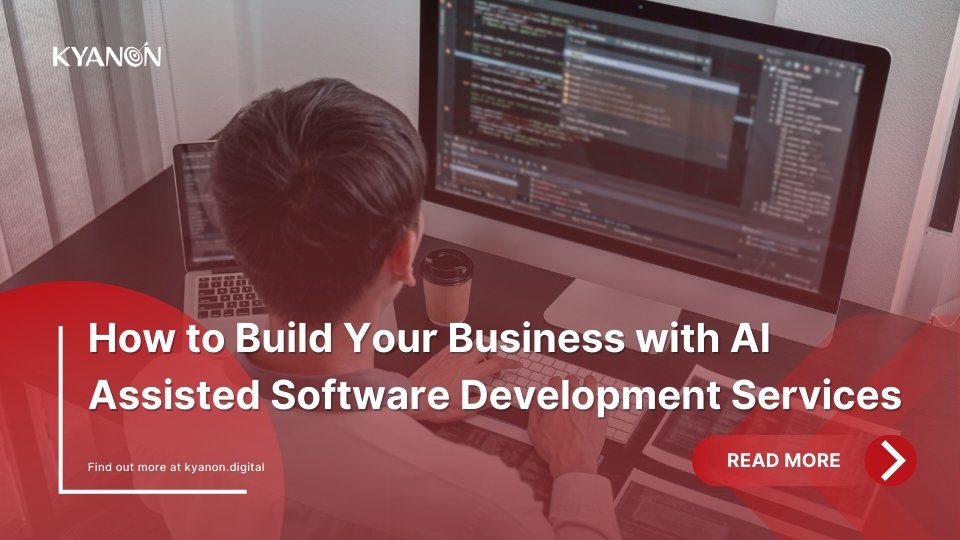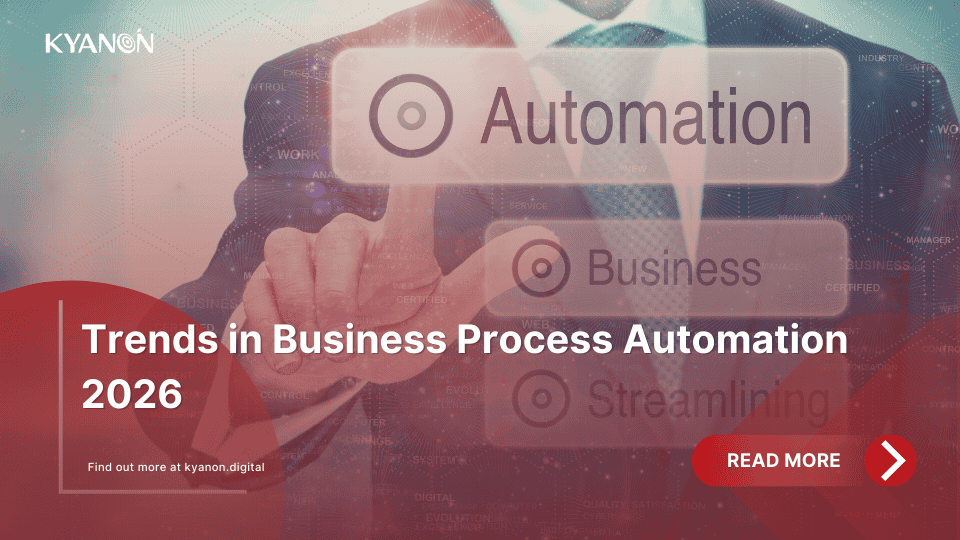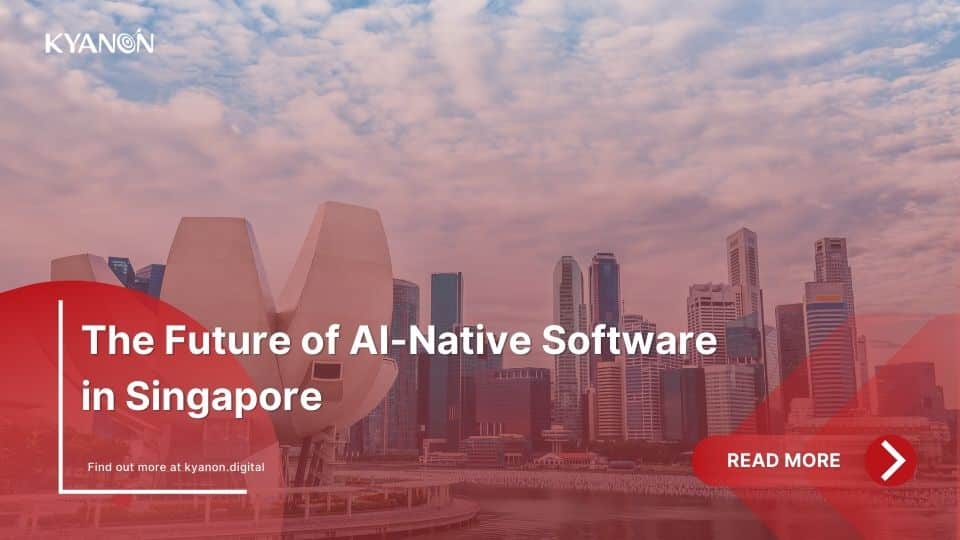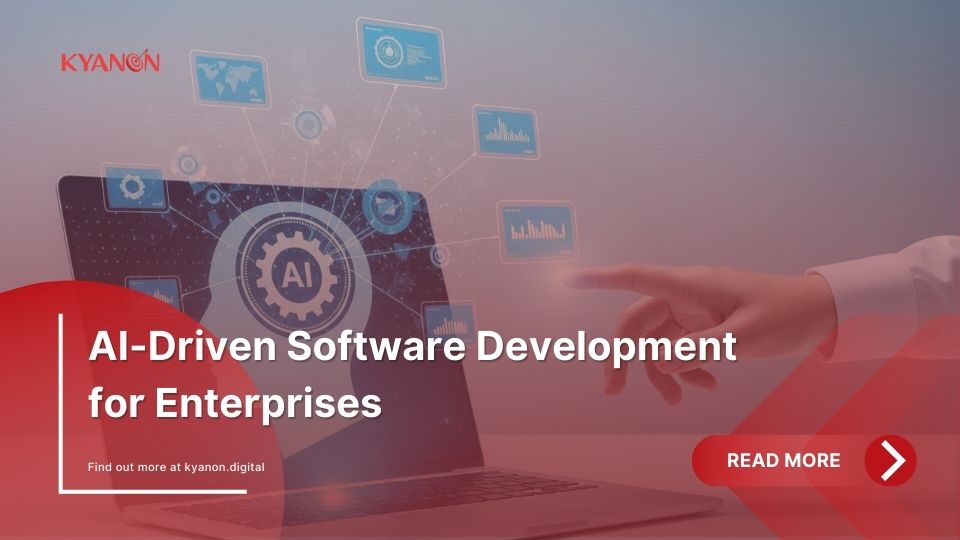In today’s digital-first economy, businesses are under increasing pressure to innovate faster, reduce costs, and scale efficiently. AI assisted software development is rapidly becoming a game-changer, empowering companies to accelerate delivery cycles and boost code quality. With the global software market projected to hit $902.74 billion by 2030 (Statista), the demand for smarter, faster, and more agile development methods has never been greater. But how can companies integrate AI effectively into their software development workflows?
This blog explores the rise of AI assisted software development, the synergy between AI and software engineers, and how artificial intelligence software development services are transforming business outcomes. Read on to discover how your business can gain a competitive edge with intelligent automation.
Key Takeaways
- The challenge: Businesses are under constant pressure to innovate, cut costs, and deliver scalable digital solutions – yet traditional development approaches struggle to meet these demands.
- The solution: AI assisted software development integrates automation, intelligent recommendations, and data-driven decision-making across the software lifecycle, from planning to maintenance.
- The approach: By leveraging tools such as NLP, predictive analytics, and machine learning, teams enhance planning, automate coding and testing, and optimize UX with real-time insights.
- The impact: Development becomes faster, more consistent, and cost-effective – helping organizations improve product quality, reduce time-to-market, and maximize efficiency.
- The result: Companies using artificial intelligence software development services gain a lasting competitive advantage by building better digital products at scale with reduced overhead.
Further Reading
- Kyanon Digital Named Among Top AI Development Companies in Vietnam by GoodFirms
- How to choose the right AI consulting service partner for your business
- Reliable Artificial Intelligence Company In Vietnam
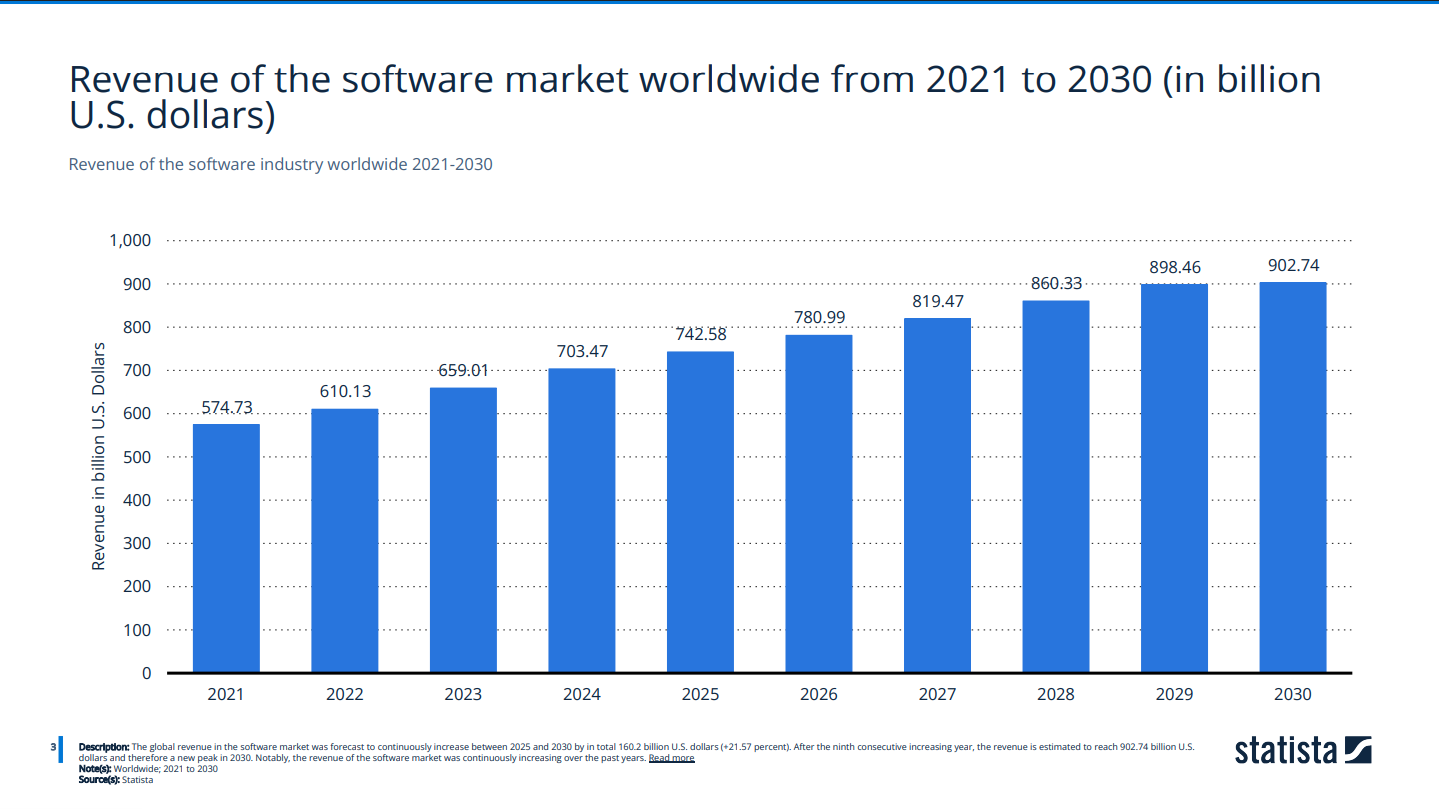
The evolution of software development with AI
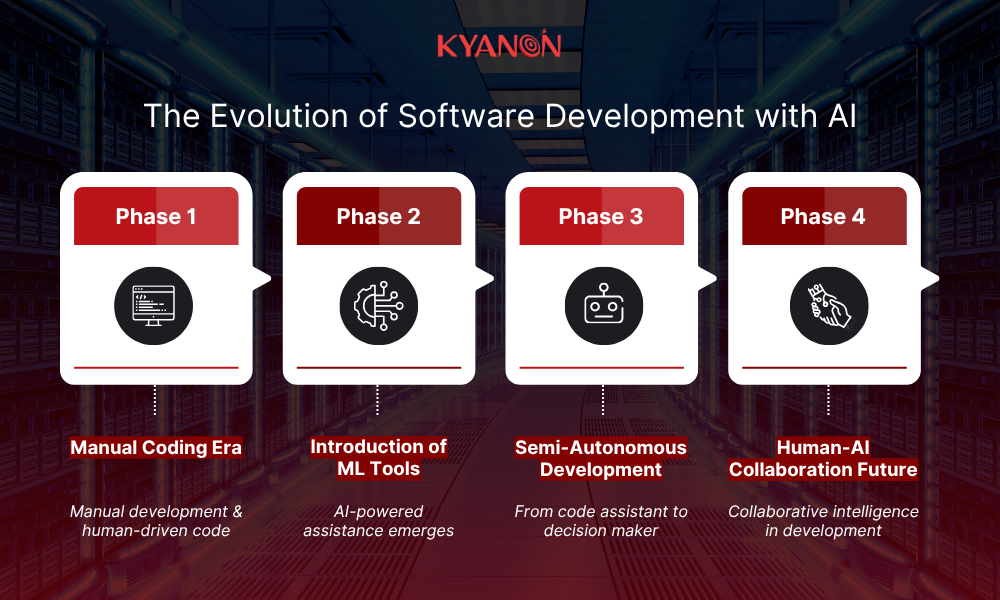
From manual coding to intelligent automation
Software development has come a long way from manual, code-intensive processes to today’s AI-augmented workflows. Traditionally, engineers relied on handwritten code, rigid methodologies, and manual debugging. While this approach ensured control and customization, it was time-consuming and often prone to human error. The introduction of automation tools laid the groundwork for enhanced efficiency, but it is AI assisted software development that has truly redefined how modern software is built.
The rise of machine learning in development
The integration of machine learning algorithms into development environments marked a significant turning point. AI began assisting developers by automating repetitive tasks such as code suggestions, syntax corrections, and even test case generation. Platforms like GitHub Copilot and Tabnine exemplify how AI and software development now intersect, empowering developers with intelligent suggestions based on natural language prompts and historical code patterns. These tools are not replacing developers but augmenting their capabilities to write better code, faster.
From supportive tools to autonomous systems
Today, AI is not just assisting but starting to take on more autonomous roles in software engineering. From code refactoring and bug prediction to performance optimization and system architecture recommendations, software development artificial intelligence is moving from supportive to semi-autonomous levels. These advancements signal a shift toward collaborative intelligence – where humans and machines co-develop, reducing technical debt and enhancing development speed without compromising quality.
Preparing for the next phase
As AI models evolve toward greater contextual understanding and real-time adaptation, the future of AI and software engineers lies in symbiotic collaboration. Developers will increasingly focus on high-level strategy, ethical considerations, and problem-solving, while AI handles lower-level coding and diagnostics. This evolution is not just a technical transformation – it’s a strategic advantage for businesses seeking to stay ahead in a competitive landscape. Understanding this trajectory sets the foundation for adopting the right artificial intelligence software development services tailored to your business needs.
Transform your ideas into reality with our services. Get started today!
Our team will contact you within 24 hours.
What is AI assisted software development?
AI assisted software development refers to the integration of artificial intelligence technologies into the software development lifecycle to enhance productivity, code quality, and decision-making. By leveraging machine learning, natural language processing, and automation, AI tools can support tasks like code generation, error detection, testing, and deployment. Unlike traditional approaches, which rely heavily on manual effort, this model enables developers to work more efficiently and focus on higher-value tasks.
While AI software developers are not meant to replace human engineers, they complement them by streamlining repetitive work and providing intelligent recommendations. As a result, organizations adopting artificial intelligence software development services are better positioned to reduce time-to-market and scale digital innovation.
“The proliferation of Artificial Intelligence (AI) has profoundly impacted the landscape of software development, significantly evolving the principles and practices of development and information technology operations.” – Statista
How AI is used in software development
AI is transforming every phase of the software development life cycle, from planning and coding to testing and maintenance.
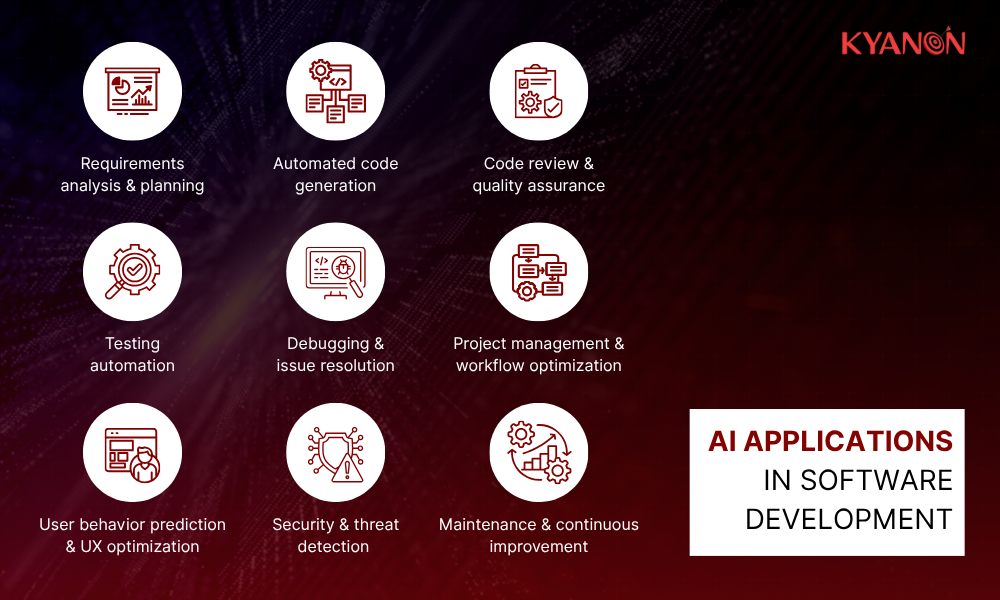
Below are key areas where artificial intelligence is actively applied, helping businesses increase efficiency, minimize risks, and enhance software quality.
Requirements analysis and planning
Modern planning tools powered by artificial intelligence software development services can extract insights from historical project data, market trends, and user behaviors. This enables teams to create more precise specifications, reduce ambiguity, and better allocate resources during early development phases.
Automated code generation
With the help of NLP-based models, development teams can translate business logic into code using natural language commands. This is where AI assisted software development proves highly valuable – automating repetitive tasks while allowing engineers to focus on building differentiated features.
Code review and quality assurance
Tools leveraging software development artificial intelligence can automatically scan codebases to detect logic errors, security flaws, and stylistic inconsistencies. These continuous improvements reduce technical debt and ensure adherence to industry standards with minimal manual effort.
Testing automation
Automated test generation and intelligent bug detection have significantly improved release velocity. In the broader context of AI and software development, AI helps QA teams simulate real-world conditions, prioritize critical bugs, and shorten feedback loops across CI/CD pipelines.
Debugging and issue resolution
AI models analyze logs and historical incidents to suggest likely root causes and remediation paths. By integrating these solutions, a modern AI software developer can drastically reduce the mean time to resolution, ensuring faster recovery and less downtime.
Project management and workflow optimization
Through predictive analytics and intelligent task routing, AI enhances sprint planning and team collaboration. This reflects the growing role of AI and software engineers working together to optimize performance metrics and improve development throughput.
User behavior prediction and UX optimization
AI models also track user interactions to inform front-end development decisions. By analyzing how users navigate an application, AI can suggest interface adjustments or feature enhancements that align with user preferences. These insights are valuable for teams practicing AI assisted software development, where continuous iteration is key.
Security and threat detection
AI enables real-time monitoring for vulnerabilities and anomalies that traditional tools may overlook. By embedding these capabilities early in the SDLC, businesses gain proactive defense layers without slowing development, reinforcing the strength of AI and software development integration.
Maintenance and continuous improvement
After deployment, AI evaluates system performance and user feedback to propose updates. These ongoing refinements exemplify how AI assisted software development extends beyond coding, delivering sustained value through predictive maintenance and feature enhancement.
Get the Vietnam Software Outsourcing Pricing Guide 2025
Your shortcut to Vietnam’s outsourcing costs and key market insights.

Why work with Kyanon Digital?
- Expertise Trusted by Fortune 500 Clients
With deep experience serving Fortune 500 companies, we deliver tailored, high-impact solutions that meet the unique demands of global enterprises. - A World-Class IT Team
Our 500+ IT experts—spanning consulting, project management, technical architecture, software engineering, QA, DevOps, and AI/ML—are committed to excellence in every project. - Quality at the Core
Certified under ISO 9001, our quality-first approach guarantees precision, reliability, and continuous improvement. - Uncompromising Security
ISO 27001-certified, we integrate robust security into every process, leveraging advanced technologies to protect your data against evolving threats.

Share your requirements with us!
The role of AI and software engineers
| Responsibility | AI capabilities | Human engineer contributions |
| Code generation | AI tools can auto-generate code snippets using NLP, accelerating delivery of routine logic. | Engineers review, adapt, and contextualize code to meet system architecture and business logic. |
| Code review & quality assurance | Through pattern recognition, AI detects bugs, syntax errors, and performance issues at scale. | Human developers handle complex logic validation and ensure code aligns with domain-specific needs. |
| Testing & debugging | AI performs test automation, generates test cases, and suggests fixes based on historical data. | Engineers assess edge cases and confirm AI recommendations within the full application context. |
| Project management insights | AI analyzes progress data and resource utilization, offering predictive risk detection. | Developers and managers interpret results and adjust workflows based on strategic objectives. |
| Security & compliance | AI scans for vulnerabilities, flags anomalies, and supports baseline compliance checks. | Security engineers apply compliance standards, review ethical implications, and manage exceptions. |
| Post-deployment monitoring | AI tracks application health, flags issues, and recommends performance improvements. | Engineers prioritize enhancements and make product decisions based on user impact. |
| Strategic decision-making | Limited
AI provides data-driven insights but lacks real-world judgment or innovation capabilities. |
Software engineers drive innovation, user-centered design, and long-term tech vision. |
The balance between AI software developer capabilities and human expertise creates a powerful development model. By leveraging AI assisted software development, companies can accelerate delivery without compromising quality – especially when supported by skilled AI and software engineers. For long-term success, leading organizations are integrating artificial intelligence software development services to blend automation with human strategy at every stage of the lifecycle.
Benefits of AI assisted software development
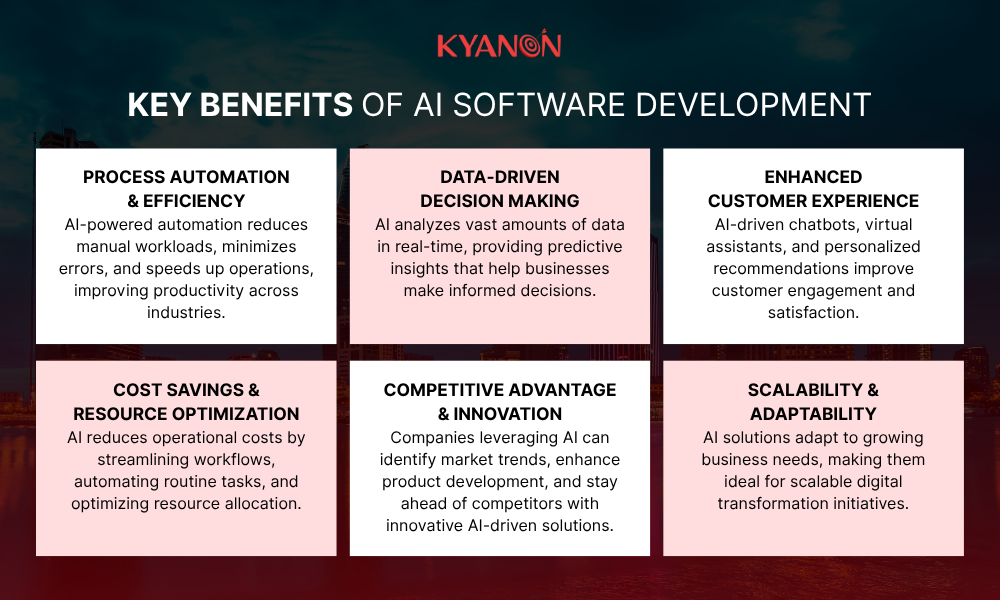
Process automation & efficiency
AI-powered tools significantly reduce manual effort by automating routine tasks such as code generation, testing, and deployment. This not only speeds up software delivery but also improves consistency across workflows. For enterprises leveraging AI assisted software development, automation is key to driving operational efficiency and lowering the risk of human error in complex systems.
Data-driven decision making
With the ability to process and analyze vast datasets in real time, modern AI platforms offer developers and business teams actionable insights. These insights help teams prioritize features, improve system performance, and make informed decisions at every stage of the development lifecycle. In the broader context of AI and software development, data becomes a strategic asset for planning and execution.
Enhanced customer experience
Intelligent virtual assistants, AI-powered recommendation engines, and smart routing systems are redefining how users interact with digital products. These tools enable businesses to deliver faster, more personalized service across multiple channels. Companies collaborating with an experienced AI software developer can quickly deploy solutions that boost engagement and customer satisfaction.
Cost savings & resource optimization
By automating repetitive coding tasks, monitoring system performance, and streamlining testing processes, AI reduces the demand on human resources while maintaining quality. This makes it easier for teams to focus on higher-priority work such as design, security, or innovation. As a result, many businesses now rely on artificial intelligence software development services to maximize return on investment and reduce long-term operational costs.
Competitive advantage & innovation
AI enables rapid experimentation, intelligent prototyping, and faster iteration cycles – factors that are crucial in dynamic markets. Through custom-built models and smart automation, companies can anticipate customer needs, optimize product features, and innovate at scale. This is where the synergy between AI and software engineers plays a crucial role in driving long-term differentiation.
Scalability & adaptability
AI-driven architectures are designed to evolve alongside business needs, supporting everything from small-scale enhancements to enterprise-level transformations. Teams that prioritize software development artificial intelligence can easily expand use cases, integrate with existing systems, and future-proof their digital capabilities. This flexibility is essential for sustaining growth in fast-changing technology environments.
Real-world use case: Accelerating software modernization with AI-Powered developer agents
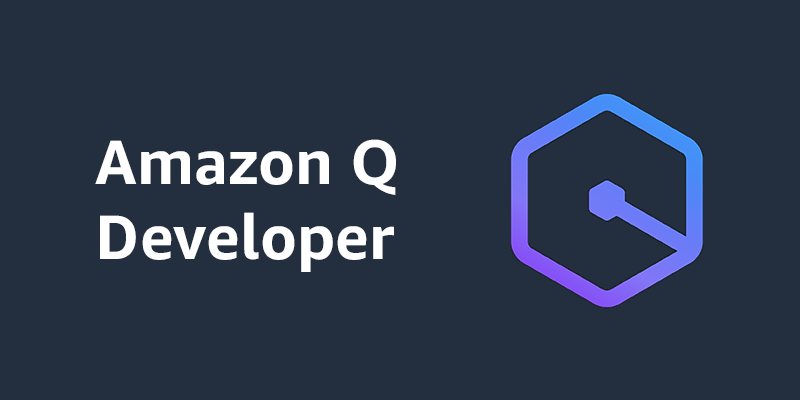
AI is rapidly changing the way modern businesses approach software development, offering intelligent automation that optimizes speed, accuracy, and scalability. A real-world example of this innovation can be seen in Amazon Web Services’ launch of the Amazon Q Developer Agent, a powerful AI assistant designed specifically for code transformation tasks. This tool automates complex upgrade processes by analyzing outdated application code, recommending refactors, and helping teams modernize to cloud-native standards – all while reducing the manual burden on engineers.
This case demonstrates how AI-assisted software development is being implemented to streamline legacy system upgrades, particularly in large enterprises with extensive technical debt. By embedding AI into the development lifecycle, businesses benefit from faster code transformation, reduced downtime, and more consistent delivery quality. This reflects a broader shift in software development artificial intelligence, where AI plays a critical role in not only accelerating technical workflows but also enhancing long-term maintainability and innovation capacity across the SDLC.
Kyanon Digital: Your trusted partner in AI development

As a trusted leader in AI development, Kyanon Digital delivers tailor-made AI solutions ranging from intelligent chatbots and data extraction tools to advanced business automation systems. Our expertise extends to AI model selection, development, training, and ongoing optimization, ensuring seamless performance and long-term value.
What makes Kyanon Digital different?
- Human-Centric Design: We design solutions that are intuitive, impactful, and crafted to solve real-world challenges while enhancing user experiences.
- Engineering Excellence: With our Center of Excellence (CoE) driving innovation, we deliver scalable, reliable, and future-ready digital solutions.
- High-performance Agile Teams: Our expert teams seamlessly integrate with yours, combining technical expertise, agile mastery, and transparent collaboration to deliver adaptable, high-impact results.
Conclusion
AI assisted software development empowers businesses to accelerate delivery, enhance software quality, and drive innovation at scale. As AI continues to evolve, its role spans every stage of the software lifecycle – from planning and coding to testing, optimization, and post-deployment improvements. With intelligent automation, data-driven insights, and real-time adaptability, companies can reduce time-to-market, improve user experiences, and optimize resources across teams.
By combining AI capabilities with skilled engineering, organizations unlock new levels of efficiency and agility in an increasingly competitive digital landscape. Whether through end-to-end development, legacy system integration, or custom AI model training, artificial intelligence software development services offer the flexibility and scalability needed to stay ahead.
Ready to build smarter, faster, and more scalable software? Contact Kyanon Digital to learn how our AI software development services can support your transformation journey.
Citations & References
- The evolution of software development: A new era of AI and automation, Fadi Khoury – LinkedIn
- AI in software development: Statistics & trends, Statista
- The evolution of AI in software development: From assistance to full automation, Ensar Gündoğdu – Medium
- Guide to AI-assisted software development, Publicis Sapient
- Glossary: AI-assisted development (AIAD), Mendix
- AI in software development, IBM Think
- AI in software development: Insights and impact, Leanware
- AI is driving an evolution in the role of the software developer, Forbes
- AI vs. human engineers: Benchmark comparison in coding, Ahmed Albadri – LinkedIn
- Will AI replace software engineers? A reality check, Carnegie Mellon University Bootcamps
- AI vs. software engineer: What’s the difference?, Fonzi.ai
- AI vs. human code review: Pros and cons compared, API4AI – Medium
- AI vs. human interaction: Software development and the future of jobs, De Zoysa – LinkedIn
- Best AI software development services for your business needs, InvestGlass
- Accelerate application upgrades with Amazon Q Developer agent for code transformation, AWS Blog
- Chief AI Officer Blog – The future of coding is here: How AI is reshaping software development, Deloitte
